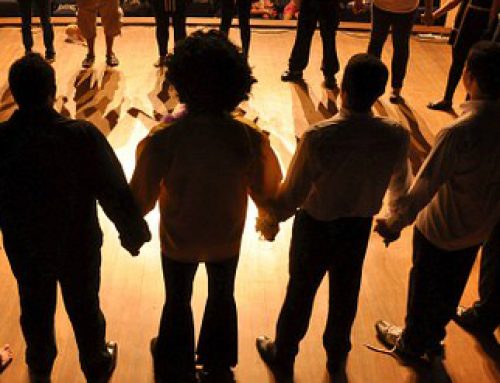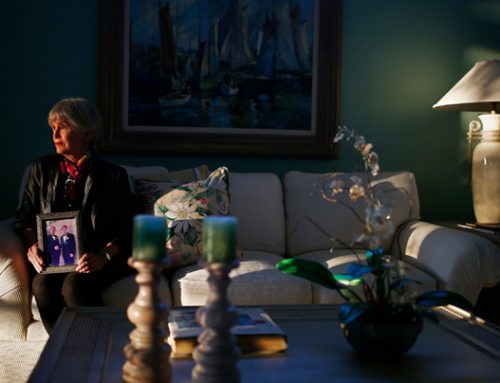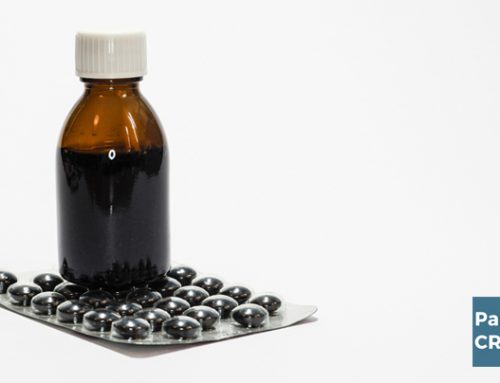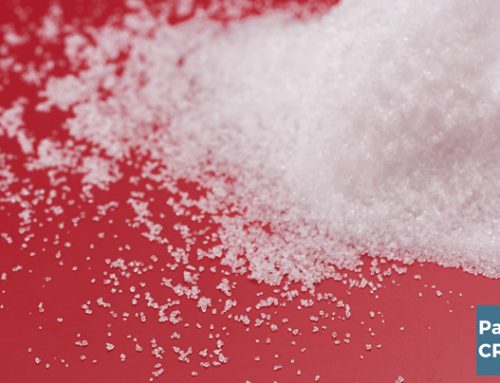The first time my son, Ryan, came home drunk he was fifteen years old. It was the first day of school, his sophomore year. There was a half-day of school, and he had spent the afternoon with friends. He’d called his dad and I to come and pick him up. When he got into the car, he was somewhat giggly, loose, a huge smile spreading across his face as he tried to talk, the words tumbling clumsily from his mouth. I wondered what was up. When embarrassed, or lying, or trying to be sneaky, he tended to smile profusely, a shy, awkward smile. It wasn’t until we reached the house, and he stepped, or stumbled rather, out of the car and walked toward the house, that I realized he was drunk. At that point, I did what most mothers would do… I cried. I cried for what I feared was to come if drinking became a pattern of behavior for him. I cried for the loss of innocence that this represented to me, for the little boy he had once been who suddenly seemed a million miles away.
Ryan, the oldest of two children, had always been the kind of kid who charmed adults and his peers alike. Adults we knew, people in the community, would make a point of coming up to me and telling me what a “good kid” he was. They were referring to his manners, his kindness, his respectfulness. He was reserved and often quiet, highly intelligent, with a keen wit, an undeniable charm, a luminosity. When he was around, no matter who you were, you wanted to be a part of his circle, to have some of that radiance shine onto you just by virtue of being near. He had a gentle charisma that drew people in.
Despite his many strengths, Ryan was easily influenced by his peers. If he hung around people who were sober, positive, motivated, working toward something, he tended be that way too. However, there were times when he gravitated toward people who were more radical in their behavior, and he was right there along with them. The more extreme or “hard core” his friends were, the more drugs and/or alcohol they used, the more he used. When he was sober, he was pleasant to be around. He took care of his bedroom, keeping it clean and organized. He slept and ate well. He attended school. He helped out around the house. He helped me work in my flower garden. However, when he was using, he was like a completely different person, one who was barely recognizable as my son. He would steal things that had belonged to us, for example, taking our camera, one of his dad’s guitars, the coin collection my grandmother had given me, and he would sell these things at a local pawn shop. He would steal money from my purse. He would take things from his sister’s room. At those times, Ryan was extremely irritable, always ready for an argument. Sometimes he threatened to hurt my ex-husband or me. He never threatened to hurt his sister, but she was understandably afraid of him too at times. He could be impulsive and reckless.
About a year after that first incident, a year filled with ups and downs, I had convinced him to go to counseling. Being a therapist myself, I was optimistic. I believe in the process of therapy, and I believe in our capacity as human beings to change. We had a couple of family sessions with this therapist, and he had some individual ones as well. Ryan was closed and distant. The therapist tried to connect with him, but he would not allow that to happen. Therapy only works to the extent that the patient will allow it to work. The more open and honest and willing to do the work a patient is, the more progress she will make. Any progress is a good thing. Sometimes, however, the timing is not right, when the person is not ready, no progress is made at all. Such was the case with Ryan. People only change when they are tired of living the way they have been living, tired of making the same mistakes again and again, tired of feeling as horrible as they feel, tired of being stuck in destructive patterns, relationships, jobs, etc. Only then is real and lasting change possible. This is not to say that people have to “hit rock bottom,” before they can make significant changes. They just have to be tired of the status quo. Ryan was young and naïve. He had not lived long enough to grow tired of his status quo. And so during therapy sessions, Ryan was often quiet. His poor therapist worked harder at his therapy than he did. When he did talk to her, he told her untruths and half-truths. He had become a master at telling people half-truths that would lead them to false conclusions, a skillful manipulator.
This strategy of telling half or twisted truths worked very well with the parents of his friends, who readily believed that he was being mistreated at home and let him stay with them for a month or more at a time. He would tell them things like, “Going home is not an option for me.” This statement could be interpreted in many ways. In reality, going home was not an option for him because he didn’t want to do it. It was only after they had seen some of his difficult behaviors and his refusal to follow even simple household rules, usually about a month after he’d been staying with them, that they would call me and say he’d been staying with them and they were truly sorry, but he would have to return home. I would respond by saying things like, “I’m sorry he gave you such a hard time, but good, I’m so relieved to hear that he’ll be coming home.” Then we would have an honest conversation about his behavior and his patterns of manipulating whatever system he was a part of at the time. Everyone wanted to trust him, to believe his earnestness with which he spoke. Time and again we were taken in, only to later discover that it had all been a charade. He was a masterful painter of pictures, a spinner of tangled yarns that led one to feel sorry for him, for how horrible things in his life were. The truth was that during those phases, he wanted to stay out and party, he didn’t want to take any responsibility for himself, or to be responsible to others, or to follow any basic rules.
Ryan had developed a pattern of being gone for a month or so, using heavily the whole time, and then coming home and being sober for a month or so. This went on for about two years. During that time I came to realize that as parents, we can influence our children, we can pressure them to make good choices, we can reward them for doing so, we can be supportive and encouraging, we can take privileges away, but in the end, without being abusive (which of course is NEVER the answer), we cannot physically make a sixteen or seventeen or eighteen year old do anything they refuse to do. There were many times when I felt powerless, and yet I kept trying, kept being optimistic that he would come around and be reasonable, that he would reconnect with the person I knew him to be beneath all that he was doing to himself. And every month or so, he did. Then it would all begin again. The last six months of his life, the cycle stopped. He remained at home the entire time. After two years of coming and going, he decided that things were no better, and were sometimes even worse, somewhere else. And so he settled down a bit.
After one sejour with a particularly wild and destructive friend, Ryan came home a bit more subdued. He told me he’d been thinking that perhaps he should leave town, have a fresh start. He wondered about the possibility of living with my parents, who lived three and a half hours away in another state. I was so thrilled and relieved at the prospect of him starting anew. I called my mother immediately and asked her to consider taking him in. Knowing the struggles he was having, and thus the difficulty the rest of the family was having, my parents agreed that this might be the best thing for him, and they said yes, that he could come and live with them. That weekend we took him to their house. He was humble and reserved. He seemed to be atoning for how he’d been living, how he’d hurt the people in his life, how he’d hurt himself. We left my parents’ house with a lightness we hadn’t felt in awhile. Our mood was optimistic. It seemed that he would be safe after all, that for the first time in a long time, he was making thoughtful choices, good choices, healthy choices.
And so, Ryan started his junior year of high school while living with my parents. He seemed like his old self at first. He was happier than he’d been in a long time. He was playful, funny, lighter in spirit. He got along well with my parents. They took a trip together to visit the rest of my extended family. They made plans for other small vacations. He settled in at school and began to make friends. For three months, things were good, harmonious, calm.
Then his seventeenth birthday arrived. We picked him up for the weekend and brought him back home so that he could get his driver’s license. He had been doing consistently well, and this seemed like a perfect way to reinforce his progress. In coming back to our state, he got back in touch with his old friends. There were no problems over the weekend, but it wasn’t long before they developed. Two weeks after the weekend at home, an old girlfriend showed up at Ryan’s new school. She had skipped school herself and driven the three and a half hours to see him. She told the officials at Ryan’s school that she was his sister and visiting from out of state. They allowed him to leave with her. After that visit, everything changed between Ryan and my parents. He became belligerent and picked fights. He sabotaged his relationship with them by doing things like taking their car without permission. He had started using drugs again, finding a crowd of friends at his new school who were similar to the friends he’d left behind. It seemed as if the spell had been broken. He yelled at my parents, making a big scene on Thanksgiving day, and demanded to return home with us. It was a very tense few weeks.
Then, as per his pattern, he settled down again for a couple of months. He started taking care of things around the house, started helping me clean and do the dishes and work in the garden. He was still going out at night and spending time with friends, but the intensity that we had seen over the summer was gone. Ryan was more like the person we all knew and loved. He and I talked a lot during those periods when he was doing better. The moments when he was warm and open were a gift. We talked about everything from photography to music to movies to books to politics to religion. I would tell him that the things he was doing were not consistent with who I knew him to be and that one day he would realize that too, and he would choose to live differently. It is important to differentiate between the behaviors being displayed, keeping in mind that drug and alcohol use are behaviors, and the person we know our child to be is still there underneath all that. I wanted him to know that I always loved and accepted him as a person, even when his behaviors were completely, utterly unacceptable, even when I loathed watching him self destruct.
During the times when he was using, he would lose friends too. They grew tired of the roller coaster, and so he would start to hang out with a new group of people for awhile. These relationships would be formed based on a love of partying together. Sometimes he completely burned bridges with his older friends. They just could not stand the lies and the betrayals. Other times people would just take a break from him for awhile, and then they started to miss him, the “good Ryan.” We all did. And so, many friends and girlfriends of his cycled in and out of his life. I think the periods of nonuse were a form of self-preservation, not just for his body and mind, but for his relationships. During those times he would focus on reconnecting and repairing damage he’d done to his relationships.
In the spring of that year, he had gone to a weekend-long rave. It was held at an outdoor venue, way out in the country, at a place that was notorious for being rampant with drugs of all kinds. Ryan later said that whatever drug offered to him that weekend, he took it. He mixed many different things, not knowing in most cases what he’d even taken. He came home Sunday night and woke us up, telling us he’d inadvertently overdosed. He was scared. His heart had been racing from whatever he’d taken at the rave, and after coming home he took a handful of his dad’s blood pressure medicine in an effort to calm his heart down. He knocked on the bedroom door, telling us he’d taken a lot of pills and was feeling weird. We took him to the emergency room and spent the night there with him, awaiting placement in a psychiatric facility. He spent three days in an adolescent unit located two hours from our house, where he was treated for depression. We attended family therapy sessions; he attended group and individual sessions. He was connected to a psychiatrist in our area for after care. He felt again that things had gotten out of control, but after the hospitalization, he felt a renewed sense of hope. We all cried together and felt truly connected to one another. He created a playlist of songs that to him represented hope and reassured him that he was going to make it. Ryan had told us and the therapists at the hospital that the overdose was not intentional. After he came back home, once again, there was a period of relative calm, which lasted a bit longer this time, for about six or eight weeks.
Then there was one final cycle of leaving home for a month, refusing to come back, heavy drug and alcohol use. He’d stayed with another friend named Luke until, as usual, the friend’s mother had had enough of Ryan’s behavior and essentially kicked him out. He came back home. Not long after, he celebrated his eighteenth birthday.
A few weeks after Ryan’s birthday, he went to visit his friend, Luke, again. There was another young man in the crowd who didn’t like Luke because they were both dating the same girl. One Saturday night after much posturing and threatening, they had arranged to meet in a park after dark to “settle their differences.” Luke had asked Ryan to be there with him, to be his backup in case he needed help. Ryan and Luke went to meet up with this other guy. On the way out the door, Ryan had grabbed a baseball bat to take along to the fight, “just in case” it would be needed. Taking a baseball bat to a fight is never a good idea. They arrived at the park. Everyone had been drinking prior to this. Luke and the other guy began fighting, seriously fighting. Ryan was watching. Luke was being beaten badly and began to cry, to plead with Ryan to help him. The other guy was truly huge and had been in a lot of fights. Fighting, it seemed, was his favorite past-time. Ryan was scared for Luke and so he took the baseball bat and struck the other guy with the bat, hitting him four times on the head. Ryan stopped hitting the young man when he realized the guy had stopped moving. As a result, the poor guy experienced a traumatic brain injury. Thank God he didn’t die as a result of the trauma to the head. He was hospitalized and was in intensive care for quite awhile. He eventually did recover most of his abilities, but he was never quite the same after that, and it took a few years to recover. Ryan and Luke were both arrested and charged with aggravated battery, which is a felony charge. So, three weeks after turning eighteen, Ryan was arrested, spent a few days in jail, and had a felony charge looming over his head.
He was so ashamed of what had happened. He had never had a history of violence like that. We hired a lawyer, and Ryan was released from jail on bond. For the next five months, the case loomed over us all. Ryan had cut back on his drug and alcohol use again. He was more reserved, humbled, and I am sure he was scared. We all were. The paradox is that five months while the case was pending were, in many ways, the best months we’d had with him since he was a freshman in high school. He seemed like himself more and more. He was pleasant and easy to get along with. The anger was gone. Despite his fear about the case, he joked easily. He liked eating dinner at home with us. He started doing some things with his sister, attending family events. He and his girlfriend slept at our house every night. I really thought that we’d get through the trial and that everything would be okay. I was optimistic that he would be able to rebuild his life, no matter what the outcome of the trial was.
Ryan was presented with a plea bargain, which would reduce the penalty somewhat and would result in him having to spend one month in the county jail, no time in state prison, and having to pay a huge amount of restitution to the victim. He would, however, still have a felony charge on his record. He decided to accept the deal, and he awaited the court date.
There was so much that happened in the four days leading up to the court date. The details are almost pointless now, eight years later, because nothing changes the fact that after another episode of violence and another arrest two days before the awaited court date, after accepting the plea bargain on that Monday morning, later on the very same day, Ryan took his own life. He died at the age of eighteen at 5:45 pm on a chilly Monday evening in late April. The last words he communicated to us via a text message were, “I love you.”
Ryan was sober when he died. It was not the alcohol or drug use that killed him directly, but rather this had an indirect effect on his all-too-early demise. It led him away from who he was, it led him away from his family and sober friends. It led him to make terrible decisions. It led him to do some terrible things, and ultimately, it led him to the place where he felt that he had no other options apart from suicide. It wasn’t until after his death, and after talking frankly with his friends, that I learned just how much drugs had been involved in his erratic behavior, his mood swings. None of the doctors or counselors who treated him had recognized that either. Like most substance users, he kept it skillfully hidden. In hindsight, now as I write this story, the signs were all there. Eight years later, one can see a whole lot more clearly.
Hindsight is always 20/20. But in terms of his suicide, no one had seen that coming. The events of the final four days of his life developed into one perfect storm, one that left him standing in the middle of a raging tempest. It still seems to me that it was done in an impulsive and desperate final effort to stop the chaos, to quiet the gale force winds and sea squalls that threatened to pull him down even further. And so he chose the only option he could see at that time. And while it’s true that the seas are now calm, the world is a less luminous place, as one brilliant, shooting star burned out far too quickly.






